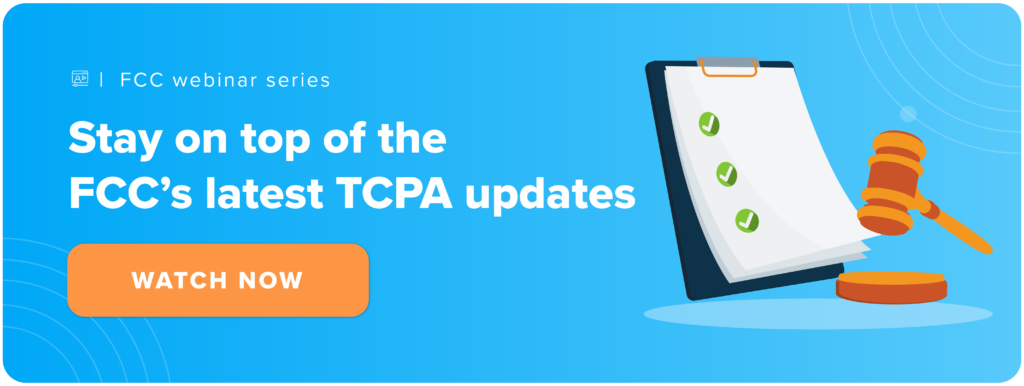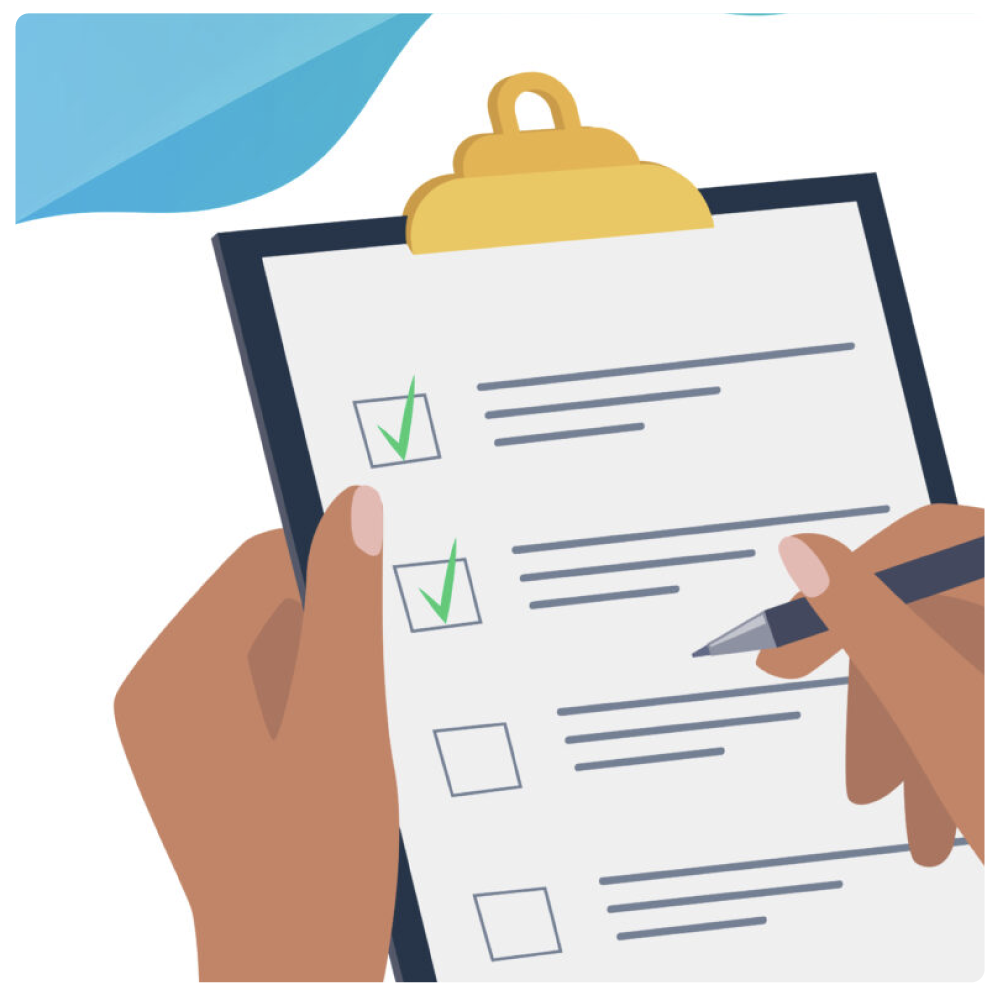A complete guide to call center compliance

Call centers play a pivotal role in many businesses, offering customer service, sales, and technical support. Yet, they operate within a framework of regulations designed to shield consumers from unsolicited calls and automated messages.
This comprehensive guide to call center compliance will walk you through the essential regulatory requirements and best practices for maintaining compliance, both for call center businesses and lead aggregators or lead sellers owning their first-party call center, operating warm transfers for their final clients.
We’ll also delve into the significance of TCPA compliance in light of the FCC’s recent rulings and explore how tools like TrustedForm can assist businesses in call center marketing to capture and manage consent effectively.
What is call center compliance?
Call center compliance is all about playing by the rules. It means following the laws, regulations, and standards that are put in place to protect the people you call and the information you gather.
These rules are there to make sure you treat people fairly, keep their information private, and run your business in an honest way. For companies that outsource call centers, following these rules is a big deal. It helps them keep their good name, avoid big fines, and keep their customers’ trust.
Why call center regulatory compliance matters
Legal and regulatory obligations
Call center regulatory compliance is a must to ensure that businesses like yours are operating within the legal framework set by government agencies and regulatory bodies. Non-compliance can result in severe legal consequences, including hefty fines, legal actions, and even business shutdowns.
Consumer protection
Compliance measures are essential to safeguard consumer rights. They prevent unwanted calls, protect personal data, and empower consumers to make informed decisions about their interactions with call centers.
Customer satisfaction and trust
Meeting compliance standards is key to keeping your customers happy and loyal. They want to know their data is safe and that you’re respecting their wishes.
Business reputation
Compliance is key to upholding a good business reputation. Companies that are recognized for their dedication to compliance often find it easier to both attract and keep customers.
Competitive advantage
In a cutthroat business world, showing that you’re committed to playing by the rules can set you apart. Customers are getting pickier about who they do business with, and being on top of compliance can be the thing that makes them choose you over the next guy.
Ethical business practices
Compliance is not just about meeting legal requirements; it is a reflection of a company’s dedication to ethical business practices. By making compliance a priority, businesses show their commitment to being transparent, honest, and accountable.
Navigating key call center regulatory compliance
If you’re running a call center, you know how important it is to be on top of the rules and regulations that protect consumers. But if you’re a lead aggregator or lead seller with a first-party call center that does warm transfers for your clients, you’ve got a few extra things to keep in mind. Here’s what you need to know to keep your business in the clear and your reputation intact.
The key call center regulatory compliance frameworks are the Do Not Call (DNC) Registry, the Telemarketing Sales Rule (TSR), and the Telephone Consumer Protection Act (TCPA).
DNC
The Do Not Call (DNC) Registry is a national database managed by the Federal Trade Commission (FTC), designed to protect consumers from unwanted telemarketing calls.
By registering their phone numbers, consumers can limit the number of unsolicited sales calls they receive from telemarketers. Once a number is added to the DNC Registry, telemarketers are prohibited from calling it for unsolicited sales purposes.
Businesses are also required to maintain an internal DNC list of people that have specifically requested not to be contacted; lastly, it’s important to know that some states have their own DNC Registries, separate from the federal one.
TSR
The Telemarketing Sales Rule (TSR) is a set of regulations enforced by the Federal Trade Commission (FTC) to protect consumers from deceptive and abusive telemarketing practices. It serves as a critical framework for protecting consumers from fraud, ensuring transparency in telemarketing, and enforcing ethical business practices in the industry.
On top of checking the National Do Not Call Registry, telemarketers are required to provide to the consumer specific information upfront, including the identity of the seller, the purpose of the call, and key details about the products or services offered.
The TSR forbids misleading or false statements during a telemarketing call, particularly regarding products, services, or offers. The rule also prohibits certain types of payment methods that are difficult to track or reverse, such as cash-to-cash money transfers or remotely created checks, to prevent fraud.
The TSR limits the use of pre-recorded sales messages (robocalls), requiring telemarketers to obtain express written consent before delivering these messages.
Telemarketing calls are restricted to between 8 a.m. and 9 p.m. in the recipient’s local time zone, and telemarketers must ensure that the majority of their calls are connected to a live sales agent when a consumer answers, limiting the use of automated dialers that abandon calls.
Companies that violate the TSR can face severe fines, often up to $43,280 per violation, depending on the nature and willfulness of the violation.
TCPA
The Telephone Consumer Protection Act (TCPA) is a federal law enacted in 1991 designed to protect consumers from unsolicited and invasive telemarketing calls, robocalls, and text messages. The law establishes strict regulations for businesses and individuals conducting telephone-based marketing and provides consumers with control over the types of calls and messages they receive.
Businesses are required to obtain prior express written consent from individuals before making telemarketing calls or sending texts using an automatic telephone dialing system (ATDS) or prerecorded voice.
They have to check the numbers against the DNC registry, state DNCs, and their internal DNC list before making telemarketing calls or sending texts to ensure they do not contact individuals who have requested not to be contacted.
Telemarketing calls can only be made between 8 AM and 9 PM local time of the recipient. Remember that states may have further call time restrictions.
Businesses also have to include instructions on how to opt out of future calls and messages and maintain records of consent obtained, including the method, date, and content of the consent, to demonstrate compliance.
Lastly, they are required to provide their name, the name of the person or entity on whose behalf the call is being made, and a contact telephone number or address during the call.
Companies that violate TCPA regulations can face significant financial penalties. Consumers can seek damages of $500 per violation, or up to $1,500 per violation if the behavior is deemed willful.
The importance of TCPA compliance in call center operations: Adhering to the FCC’s new rules
As more lead aggregators and sellers turn to warm transfers, TCPA compliance for call center businesses is increasingly vital.
The Federal Communications Commission (FCC) has recently implemented new regulations to bolster TCPA compliance. These include:
- DNC protections are extended to text messages.
- One-to-one consent requirements redefine prior express written consent to mean an agreement that “clearly and conspicuously” authorizes one identified seller at a time (lead buyer) to contact a consumer.
- Calls must be “logically and topically” associated with the website interaction that prompted the consent.
- Both lead buyers and lead sellers are required to maintain documentation of consent to call. Buyers cannot rely on documentation held by the sellers.
- Consumers can revoke consent at any time by using “any reasonable means” (call, text, email, postal mail, etc.)
- Companies must honor DNC and revocation-of-consent requests as soon as practicable, and within no more than 10 business days after receipt of the request.
- The TCPA now applies to AI generated voice in calls which require prior express written consent.
- Prior express written consent may be obtained for more than one seller on a single disclosure form, as long as the consumer provides affirmative consent to be contacted by each individual seller listed on the form, on a one-to-one basis.
ùFor call centers engaging in lead generation or providing on call services, following TCPA regulations is a must. Not doing so can lead to fines, damage to your brand, and loss of customer trust. It’s important to stay up to date on the latest TCPA rules and to have systems and processes in place to ensure you are in compliance.

Essential call center compliance checklist and best practices
To help you stay on track with call center regulatory compliance, we’ve put together a comprehensive call center compliance checklist. On top of the main TCPA compliance requirements, that also apply to call centers, you also must:
- Use the FCC’s Reassigned Numbers Database to ensure that calls are not made to numbers that have been reassigned to new users who have not provided consent.
- Maintain records of all consents obtained, including date, method, and the specific content of the consent agreement.
- Document the name of the entity accessing the DNC Registry and the exact date it was accessed.
- Only call between 8:00 AM and 9:00 PM, based on the residents’ time zone. Consider that states may have other rules for calling hours.
- Document the Subscription Account Number (SAN) you’re using.
- Document the specific campaign associated with your scrubbing initiative.
- Be aware that, if you engage a third party to handle your call center outreach, the accountability for compliance rests with you.
- Limit the percentage of abandoned telemarketing calls to 3% over a 30-day period if using an ATDS system.
- Prohibit calls to emergency lines, hospital rooms, or any healthcare facilities without prior express consent.
Learn more about call center compliance here.
Moreover, here are some useful call center compliance best practices:
- Build a dedicated compliance team: Establishing a specialized compliance team responsible for monitoring, auditing, and ensuring adherence to regulations is essential. This team should stay updated with industry changes, track regulatory updates, and conduct regular compliance assessments within the organization.
- Invest in robust technology: Employ innovative software and technology to automate compliance processes, centralize customer consent records, and efficiently track call center activities.
- Prioritize employee training and education: Keep the team up to date with regular training sessions, ensuring everyone is on the same page with the latest regulations, how to get consent, and best practices for ethical and secure customer interactions. To make these sessions more engaging, businesses can use an AI script to video converter, such as the one offered by Synthesia, to quickly turn training materials into professional-looking videos that help employees absorb and retain key information.
- Implement stringent call monitoring and auditing: Establish a robust call monitoring and auditing system to assess compliance with internal policies and regulatory standards. Regularly review recorded calls to identify potential deviations, address non-compliant practices, and continuously enhance the quality and compliance of call center operations. To boost participation and documentation, automate sign-ups and reminders for compliance training, QA coaching, and call-auditing reviews with Calendly. Its scheduling workflows manage time zones, buffer times, and round-robin assignments, send confirmations, and keep a record of scheduled sessions and participants—supporting audit readiness and consistent agent enablement.
- Maintain accurate and accessible records: Keep a detailed history of your customer engagements, from consent forms to call logs, and any other pertinent information. This will not only help you stay organized but also ensure you’re ready for any regulatory checks or inquiries.
By following these guidelines, call centers can foster a culture of compliance, protect consumer privacy, and earn a reputation as a trustworthy and principled business.
TrustedForm: A reliable solution for call center regulatory compliance
For businesses in the call center marketing industry, particularly lead aggregators or sellers, a tool like TrustedForm can be a game-changer.
TrustedForm helps brands document prior express written consent while complying with the TCPA through a comprehensive suite of products:
- TrustedForm Certify documents lead events as a certificate that can be used as evidence to prove how leads were generated.
- TrustedForm Retain stores certificates and makes them readily available during the statute of limitations for marketing related laws.
- TrustedForm Verify helps check for prior express written consent to enable use of regulated technology and otherwise restricted actions.
With TrustedForm, call centers can effortlessly capture and document proof of consumer consent. This documented consent acts as a protective measure against potential TCPA missteps and equips businesses with a solid record of consent for each customer interaction.
By integrating TrustedForm into your call center, you’re not just streamlining your operations—you’re also cultivating a work environment that values compliance and transparency. Prioritizing TCPA guidelines shows your customers that their privacy matters, and that you’re dedicated to upholding industry standards. This, in turn, builds trust and rapport with your customers, setting the stage for positive experiences and lasting relationships.

Conclusion
Call center compliance is a critical aspect of operating a successful and ethical business. By adhering to industry regulations and best practices, call centers can protect consumer privacy, maintain a positive reputation, and avoid hefty legal consequences.
To ensure compliance, call centers need to be well-versed in the relevant regulations, such as the DNC registry, TSR, and TCPA. Establishing robust systems and processes to handle call attempts, secure consent, and document interactions is key to maintaining compliance, particularly with the TCPA’s stringent requirements.
TrustedForm is a powerful ally in this endeavor. By offering a suite of consent management solutions, it equips call centers with the tools to effectively navigate TCPA compliance. By capturing consent and securing storage of records, TrustedForm helps minimize legal risks, foster a culture of compliance, and drive success in a competitive industry.

DISCLAIMER: This page and all related links are provided for general informational and educational purposes only and are not legal advice. ActiveProspect does not warrant or guarantee this information will provide you with legal protection or compliance. Please consult with your legal counsel for legal and compliance advice. You are responsible for using any ActiveProspect Services in a legally compliant manner pursuant to ActiveProspect’s Terms of Service. Any quotes contained herein belong to the person(s) quoted and do not necessarily represent the views and/or opinions of ActiveProspect.





